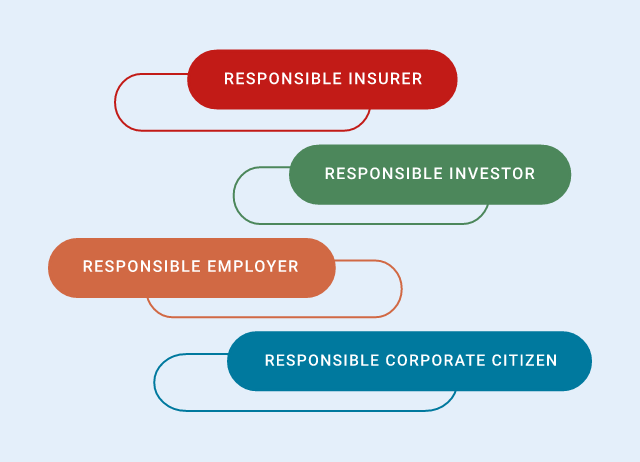Investing for climate
Tackling climate change is one of the priorities of our century.
The COP26 in Glasgow and more recently the COP29 in Baku outlined more than ever the central role of the private sector, and the financial industry in particular, to limit the climate change and accelerate the transition towards a low-carbon economy. To keep the global warming within the limit of 1.5°C compared to pre-industrial era is key in order to avoid catastrophic consequences on the environment and humanity, as demonstrated by the scientific evidence presented in the Intergovernmental Panel on Climate Change (IPCC) reports.
For an investor of our size, the best way for us to embrace this challenge is to decarbonize our investment portfolio in line with the suggestions of the scientific community. In answer to this call to action, in 2018 we developed and presented to the market a new Group climate strategy, which set 3 key commitments for our Group investments: a coal exclusion policy, a target of 4,5 bln new Green & Sustainable investments by 2021 and an engagement approach consistent with the Just Transition model.
In the years since, we have been following up on our commitments and developing the next steps of our climate strategy.
In 2020 the Generali Group joined the Net-Zero Asset Owner Alliance (NZAOA), an initiative promoted by the United Nations that asks its signatories to reach zero net emissions related to the investment portfolio by 2050.
In the following years, we raised the bar with a renewed and strengthened climate strategy, which builds up on our commitments and introduces ambitious targets:
- Our contribution to financing the sustainable transition: we will invest €8.5-€9.5 bln in green, social and sustainable bonds by 2025, with year-end 2021 as the baseline. Moreover, we recently set a new goal to increase investments in climate solutions by € 12 billion in the period 2025-2027.
- Stricter coal exclusion threshold & long-term coal phase out plan: exclusion of any new investments and progressive divestment from coal-related businesses in Generali’s portfolio. This will be achieved by applying increasingly restrictive exclusion criteria. The ultimate aim is to fully phase out issuers which operate in the thermal coal sector in OECD countries by 2030 and 2040 in the rest of the world.
- Oil & gas exclusions: exclusion of investments in issuers producing unconventional fossil fuels from tar sands, fracking technology and fossil fuel extracted within the Arctic Circle and in conventional oil & gas companies presenting transition plans (strategy, targets, and decarbonisation plans) that are not adequate.
- Portfolio decarbonization targets for 2030: as member of the Net-Zero Asset Owner Alliance, Generali has a commitment to gradually decarbonize our investment portfolio to reach net-zero emissions by 2050. This long-term commitment is consistent with the Paris Agreement’s goal to limit the global warming to 1.5°C above pre-industrial levels. As intermediate targets, Generali set new decarbonization targets for both corporate and real estate portfolios in accordance with the NZAOA protocol guidelines, with a reduction of the carbon intensity of the proprietary investment portfolio (corporate and real estate) by 60% compared to 2019 and by 2030.
- Engagement of investee companies to drive real world impact: Generali is committed to creating real world impact through our active ownership activities. We will engage 20 companies in our portfolio to to support the climate transition by 2030. To carry out the engagement, we will leverage also on the collaborative engagement platforms that we are part of (such as Climate Action 100+) to maximise our leverage.
Please see further details in the Generali Climate Transition Plan.
Insurance investments are managed in accordance with the sustainable investment policy adopted by the Group. For Banca Generali and the Asset Management companies that are part of Generali Group, please refer to their respective sustainability policies in their institutional websites.



